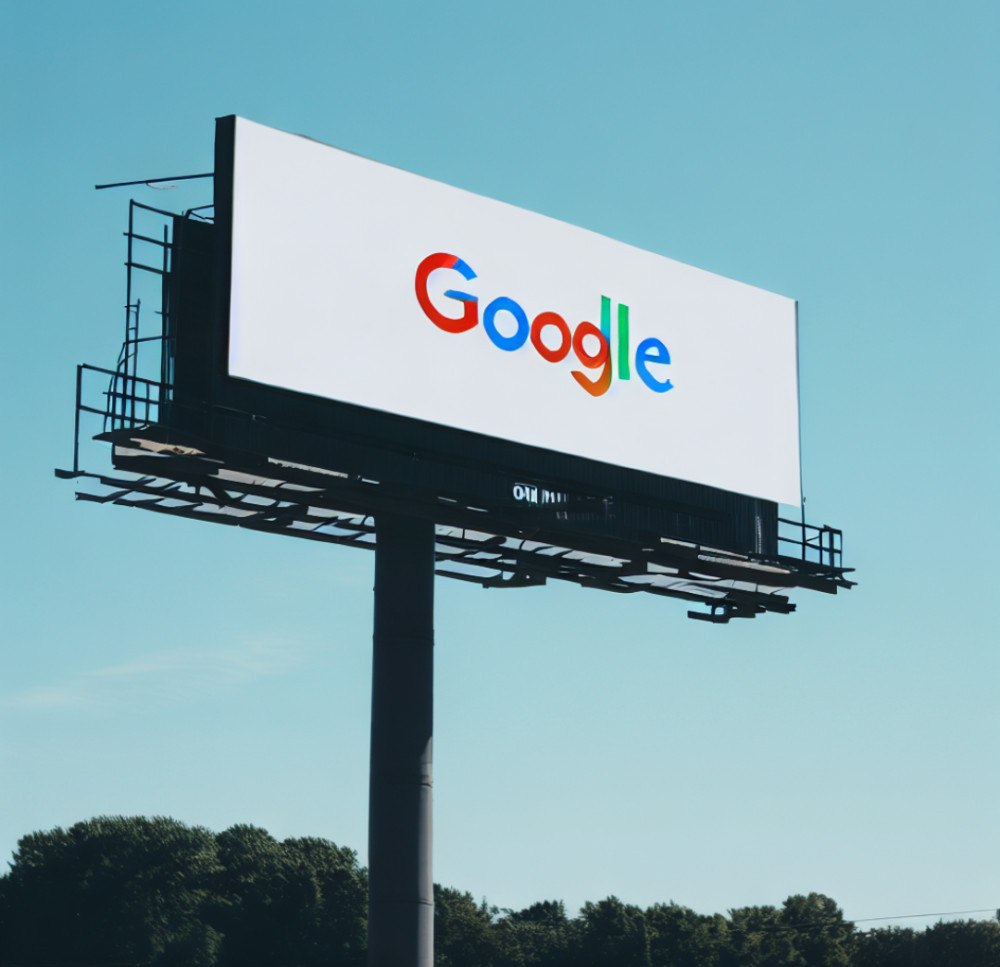Surprise! Passive Income Isn’t Really Passive!
By definition, passive income comes from investments, rental properties, partnerships, or other ventures that don’t require daily active involvement. You put in some initial work to set things up, then sit back and watch the cash roll into your bank account, without lifting a finger, right?

But for years, the internet has been flooded with promises of “passive income” – earning money while you sleep, with little or no ongoing work just by blogging. I know that you have seen all the videos. Have you ever thought to yourself, is such a thing really possible?
Not so fast. While the income from niche blogging may not require constant attention, achieving true passive status in this field is much harder than the infomercials make it seem. Behind every seemingly “passive” enterprise lies a story of dedicated effort – of research, trial and error, problem-solving, and ongoing tweaks to keep the money flowing. Along the way, you’ll get a more realistic view of the passive’s potential – and strategies for leveraging your efforts to maximize impact and move closer to true automation over time.
Why You Should Monetize Your Blog (And How to Do It Right)

Side Hustle sellers are pushing the hype of how easy it is to make passive income by monetizing your website. While blogging is a rewarding hobby, it can also be a profitable business. If you have a loyal and engaged audience, you can monetize your blog and turn your passion into passive income. However, monetizing your blog is not as easy as it sounds. I’ve seen well-intentioned creators rush to slap ads or shallow offers onto their pages racing to get a quick buck. Your readers will see this for what it is and they won’t stay unless you change your ways and provide them genuine value first. It requires hard work, patience, and strategy. In this section, I will show you why you should monetize your blog and how to do it right.
Monetizing your blog has many benefits, such as:
- It allows you to earn money from doing what you love. You can use your blog as a platform to share your knowledge, skills, and opinions with the world and get paid for it.
- It helps you cover the costs of running your blog. Blogging is not free. You need to pay for hosting, domain name, design, tools, and more. Monetizing your blog can help you cover these expenses and keep your blog running smoothly.
- It motivates you to create more and better content. When you monetize your blog, you have the incentive to produce high-quality content that attracts and retains your audience. You also have an opportunity to learn new skills and improve your craft.
- It opens up new opportunities for growth and collaboration. When you monetize your blog, you can expand your reach and influence in your niche. You can also network with other bloggers, brands, and experts in your field and create mutually beneficial partnerships.
The secret to success is taking the time to understand your audience’s true needs, not seeking a quick path to riches. Then create high-quality products and services that solve problems for them. The money comes after you have ironed out your methods through an upfront investment of time and testing. So for bloggers who’ve cultivated knowledgeable readers, monetizing helps turn that initial labor of love into long-term residual gains. With the proper audience-first focus, your work toward automation over the long haul moves your blog closer to true passive potential. So focus on providing real help – and the profits will follow.
How to Monetize Your Blog
There are many ways to monetize your blog and earn passive income. However, not all methods are suitable for every blog or niche. You need to choose the methods that match your content, audience, and goals.
Here are some of the most popular and effective ways to monetize your blog:
1. Display Ads

Display ads are one of the easiest and most common ways to monetize your blog. Display ads are banners or images that appear on your blog pages and promote products or services from other companies.
You can use ad networks like Google Adsense or Media.net to display ads on your blog. These networks will automatically show relevant ads to your visitors based on their interests and behavior. You will earn money every time someone clicks on an ad or views an ad impression.
Display ads are suitable for blogs that have high traffic volume and broad topics. However, display ads can also have some drawbacks, such as:
- Low revenue: Display ads usually pay very little per click or impression. You need a lot of traffic to make significant income from display ads.
- Poor user experience: Display ads can be annoying or distracting for your visitors. They can slow down your site’s speed and performance. They can also affect your site design and layout.
- Lack of control: Display ads are controlled by the ad networks. You have limited control over what ads are shown on your blog. You also have to follow their rules and policies.
2. Affiliate Marketing
Affiliate marketing is another popular and effective way to monetize your blog. Affiliate marketing is when you promote

products or services from other companies or individuals on your blog and earn a commission when someone purchases through your referral link.
You can use affiliate networks like Amazon Associates or ShareASale to find products or services that are relevant to your niche and audience. You can also join individual affiliate programs from companies or influencers that offer products or services that you use or recommend.
Affiliate marketing is suitable for blogs that have high engagement and trust with their audience. However, affiliate marketing can also have some challenges, such as:
- Competition: Affiliate marketing is very competitive and saturated. You need to stand out from other bloggers who are promoting the same products or services.
- Disclosure: Affiliate marketing requires disclosure and transparency. You need to inform your readers that you are using affiliate links and that you may earn a commission if they buy something through your link.
- Relevance: Affiliate marketing requires relevance and value. You need to promote products or services that are beneficial for your audience. You also need to provide honest and helpful reviews or recommendations.
3. Sponsored Posts

Sponsored posts are another common and lucrative way to monetize your blog. Sponsored posts are blog posts that you write for a company or a brand in exchange for a fee or a free product or service.
You can use platforms like LINQIA or IZEA to connect with brands that are looking for bloggers to write sponsored posts. You can also pitch directly to brands that you want to work with and negotiate your terms and rates.
Sponsored posts are suitable for blogs that have high authority and influence in their niche. However, sponsored posts can also have some risks, such as:
- Reputation: Sponsored posts can affect your reputation and credibility. You need to be careful about what brands you work with and what products or services you endorse. You also need to maintain your editorial integrity and voice.
- Disclosure: Sponsored posts require disclosure and compliance. You need to inform your readers that you are being paid or compensated for writing a sponsored post. You also need to follow the guidelines and regulations of the Federal Trade Commission (FTC) and other authorities.
- Quality: Sponsored posts require quality and professionalism. You need to write high-quality content that is relevant, engaging, and informative for your audience. You also need to meet the expectations and requirements of the brand.
4. Digital Products
Digital products are one of the best and most profitable ways to monetize your blog. Digital products are products that you create and sell online, such as ebooks, courses, podcasts, webinars, software, apps, etc.
You can use platforms like Gumroad or Teachable to create and sell your digital products. You can also use tools like ConvertKit, Mailchimp, or Brevo to build your email list and market your digital products.
Digital products are suitable for blogs that have high expertise and value in their niche. However, digital products can also have some challenges, such as:
- Creation: Digital products require creation and development. You need to invest time, money, and energy to create high-quality digital products that solve a problem or fulfill a need for your audience.
- Marketing: Digital products require marketing and promotion. You need to attract, convert, and retain customers for your digital products. You also need to deal with competition, pricing, refunds, etc.
- Support: Digital products require support and maintenance. You need to provide customer service, technical support, updates, etc. for your digital products. It would help if you also collected feedback, testimonials, reviews, etc.
5. Services
Services are another excellent and rewarding way to monetize your blog. Services are services that you offer and provide online, such as coaching, consulting, freelancing, speaking, etc.
You can use platforms like Fivver or Upwork to offer and sell your services online. You can also use tools like Calendly or Zoom to schedule and deliver your services online.
Services are suitable for blogs that have high skills and experience in their niche. However, services can also have some limitations, such as:
- Scalability: Services are not very scalable or passive. You can only serve a limited number of clients at a time. You also need to trade your time for money.
- Availability: Services depend on your availability and schedule. You need to be flexible and reliable to provide your services online. You also need to balance your work and life.
- Liability: Services involve liability and responsibility. You need to deliver quality results and outcomes for your clients. You also need to protect yourself from legal issues, disputes, etc.
How to Choose the Best Monetization Methods for Your Blog?
As you can see, there are many ways to monetize your blog and earn passive income. However, not all methods are suitable for every blog or niche.

To choose the best monetization methods for your blog, you need to consider the following factors:
- Your niche: Your niche is the topic or theme of your blog. It determines what kind of content you create and what kind of audience you attract. Your niche also influences what kind of products or services you can promote or sell on your blog.
- Your audience: Your audience is the people who read your blog. They are your potential customers or clients. Your audience determines what kind of problems they have, what kind of solutions they need, what kind of value they expect, etc.
- Your goals: These are the objectives or outcomes you want to achieve from your blog.
While blogging is a great way to pursue your passion, it takes hard work to maximize your income potential. Give monetization methods some consideration once your loyal readership is established. Put in diligent effort upfront to cultivate your niche knowledge and serve readers with high-quality content.
Now is the optimal time to test monetization strategies and invest your experienced insights back into even more helpful resources. Whether through unbiased reviews, solution-oriented courses, or thoughtful sponsored alignments, find opportunities to reward loyal followers while sustaining your creative satisfaction.
Remember – empowering others should remain the priority over fleeting personal profits. With patience and care for your community, you can transform blogging from a labor of love to a sustainable passion project over the long run. Your dedicated efforts through good times and challenges have earned trust; leverage that hard-earned foundation wisely through targeted yet tasteful monetization testing. Focus on fulfillment through service, and reliable passive income may follow in due time.
This post gave insightful perspective into the reality of achieving true passive income through blogging – it takes significant upfront effort to develop sustainable systems that continue generating income with minimal active work over time. While the dream of passive profits is tempting, continuing to contribute value to your audience will be key.
Setting Points aims to guide bloggers like yourself toward that goal. By following along with my ongoing journey, documented here, you’ll learn from my process of cultivating niche expertise, creating high-quality content, and leveraging affiliation opportunities that authentically serve readers.
Rather than quick cash schemes, this platform is dedicated to the patient work of establishing authority in your space. I hope to demonstrate how blogging can transition from intensive labor of love to residual income prosperity through diligent effort upfront followed by community-focused operation.
Make sure you follow me on your favorite platform to gain these insights firsthand moving forward. Together through open sharing, we’ll work towards making the “passive” promise a reality within our control. My mission is to prove fulfilling passions through long-term blogging success is an attainable dream worth pursuing.
I welcome you to learn alongside me – your participation will further motivate my progress as well as help others embrace blogging’s true potential. The journey to financial independence for me started here. Take a moment to join Wealthy Affiliate for free.









